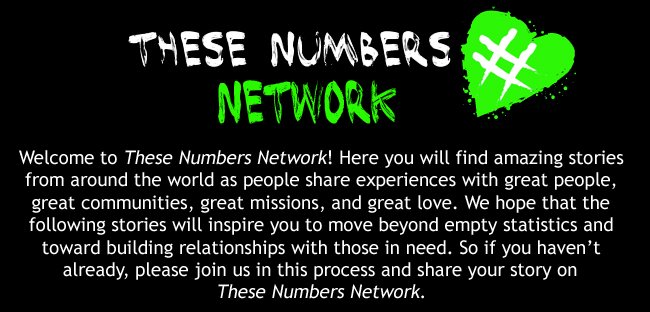Date: May 1st, 2006

Contact: jzoradi@gmail.com
This may have been one of the most significant things that happened to me during my time in Belfast:
“Remember that there is meaning beyond absurdity. Be sure that every little deed counts, that every word has power. Never forget that you can still do your share to redeem the world in spite of all absurdities and frustrations and disappointments.”
-Jewish Theologian Abraham Joshua Heschel
These profound words from Rabbi Abraham Heschel are a brilliant intro into what occurred a few weeks ago. When I was living in Belfast I would spend a few afternoons a week down at the Mornington Belfast Community Project co-leading an after school youth club. Located on the Lower Ormeau Road, Mornington sits right in the middle of a neighborhood usually referred to as being one of the most contentious areas of Northern Ireland. The
 Nationalist Catholic population of the Ormeau Road are a proud but cautious people, as they have suffered a handful of sectarian attacks on their community by the neighboring Protestant housing estates to the north, east, and south.
Nationalist Catholic population of the Ormeau Road are a proud but cautious people, as they have suffered a handful of sectarian attacks on their community by the neighboring Protestant housing estates to the north, east, and south. One of the main reasons I go to Mornington is because of a young man named Bryan; who is far and away one of the coolest kids I’ve ever met. He’s diligent in his studies, honest in his viewpoints, friendly, passionate, and has continued to be one of my greatest insights into Northern Irish life. So I don’t tarnish his hard earned reputation…Bryan is also one of the most offensive, violent, foul mouthed, stubborn, explosive, and complicated kids we have in club. In fact, I believe it was him, who, on my first day at Mornington left me in absolute shock with an unimaginable slew of obscenities and insults. His quick temper and reactionary positions, while oftentimes valid, usually have him furniture throwing, thrashing, and fighting nearly every day. Despite his outbursts, I desperately love this kid and am dreading the day I have to say goodbye to him. I wonder if he’ll ever be able to understand just how special he has made this year for me.
We’ve also had some new kids at club lately, so I’ve also been spending a good amount of time with another boy named Johnny. While a few years younger than Bryan, Johnny is silly and crude, honest and playful.
I am always intrigued with the boys at Mornington and their relationship with the Protestant neighborhood across the railroad tracks. As I became better friends with Johnny, I asked him if they were still fighting with the “wee Orangies” (loyalist Protestants) across the road. He replied that it happens every once in a while and followed his remarks with a handful of sectarian obscenities and accounts of how they continue to terrorize his neighborhood. I asked him if he remembered that I had caught
 him only a few days prior, throwing stones with some other boys over the railroad tracks into the Protestant estate. He bashfully smiled, apologetically admitting that the wee orangies aren’t always the perpetrators.
him only a few days prior, throwing stones with some other boys over the railroad tracks into the Protestant estate. He bashfully smiled, apologetically admitting that the wee orangies aren’t always the perpetrators.I was feeling confident about our interactions and decided to ask Johnny if he has ever talked to any of the wee boys from across the railroad tracks. He confessed he hadn’t and restated his position with a few more bigoted comments. I then asked Johnny how he would feel if he found out there were Protestants who were secretly coming to this club. His eyes tripled in size as he exclaimed,
“What!? If there were f...ing orangie bastards at this club, well me and Bryan we’d kick their f...ing faces in. This is our club, they aren’t allowed.”While a bit taken back by his venomous response, I continued on and calmly told him that I was a Protestant and worked for a Protestant church. Surprised, he quickly caught Bryan’s eye across the room, “Bryan, did you know that Justin is a f...ing Prod?!” Until this moment I was unsure if Bryan even knew. We’ve been hanging out for months now, but I’d never really confessed my religious affiliation with anyone besides the staff members. Bryan, looking up from his homework coolly responded,
“Ya I know. I’ve known that since the first day. But he’s our friend now. None of that other stuff matters if someone is your friend.”At the exact moment of this interaction I don't think I realized how significant this really was. I may have even poked fun at Johnny for his inability to get a rise out of Bryan. But sitting on my floor later that night, I looked up from my book, still taken aback by the dealings that had taken place at Mornington that day. And while it remains one minor interaction of reconciliation amidst hundreds of sectarian remarks, I think Bryan’s response is one of courage and transformation. And based on the politics of his neighborhood, I would assume the exact opposite viewpoint has been burned into him since he was a young child. Therefore, at 12 years old, his confession of tolerance and reconciliation under his social circumstances is of radical opinion.
So I’m hopeful that my relationship with Bryan will continue to have a significant impact on his life and on other kids like Johnny from the neighborhood. I’m also optimistic that the relationships the Mornington kids can build with the Protestant volunteers will help in discouraging them from both the childish acts of sectarian stone throwing, as well as the downward spiral of adult criminality and paramilitarism.
Now for all we know, I may have romanticized the importance of this event, but for some reason still sense it to be vitally significant. And I want to make it known that
 this is not something that I have done on my own. My prideful diligence for justice and reconciliation is not what created this supposed move toward conflict resolution. This is a direct manifestation of a living and active God who has motivated Protestant volunteers to use their time more constructively; all the while softening the hearts of working class Catholic kids desperately in need of hope.
this is not something that I have done on my own. My prideful diligence for justice and reconciliation is not what created this supposed move toward conflict resolution. This is a direct manifestation of a living and active God who has motivated Protestant volunteers to use their time more constructively; all the while softening the hearts of working class Catholic kids desperately in need of hope.And it's not like I 'hear the voice of the Lord' or anything, but the sense I keep getting from Him about the Mornington kids is that of commitment. That if I want things to change for the better I have to keep showing up. I've realized just how chaotic and unstructured most of these kid's lives are, so maybe the best thing for them is that volunteers each week diligently make that appearance. Whether we feel like it or not, we have to keep showing up.
And from what we’ve seen here, reconciliation all boils down to the imperative necessity of humanizing “the enemy.” I can’t help but think again of Flannery O’Connor’s brilliant line from The Habit of Beings…
“It is hard to make your adversaries real people unless you recognize yourself in them – in which case, if you don’t watch out, they cease to be your adversaries.”I think the humanizing initiative for conflict resolution is similar in all scenarios. Whether it be complex social issues that polarize elections, localized conflicts like the one here in Belfast, or even global issues of war and terrorism. But if we can learn anything from Bryan and Johnny down at the Mornington Community Project, it is that our preconceived notions and opinions of others can be shattered when you actually meet the 'other.' Let us then encourage one another to emulate the actions of a few working class pre-teens from south Belfast and meet the adversary you secretly despise. And we all have them. You may not hate them or fight them in the streets but you sure as hell don’t trust them. It could be someone of a different skin color, or socio-economic standing, sexual orientation, political leanings, or religious traditions. But we all know how easily we each pass opinions and judgments about people we know little about. As we’ve seen here in Northern Ireland, fear of the other and a paranoid siege mentality is what has caused so much strife in this tiny country. I think the world needs more Bryan O’Neils and Johnny McCafferys.
"If you love those who love you, what reward will you get? Are not even the tax collectors doing that? And if you greet only your brothers, what are you doing more than others? Do not even pagans do that? But I tell you, love your enemies...." -Jesus, Matthew 5:46-48








 I apologise for my use of cliché, but the statistics that I had digested all my life about Africa became the bright faces of Eric, Anda, and Mike. It was those faces that will forever change the way I think about issues of poverty and my role as someone committed to social justice. As the interview ended and my friends drove back to the shacks of Gugulethu I was left with John F Kennedy’s famous words,
I apologise for my use of cliché, but the statistics that I had digested all my life about Africa became the bright faces of Eric, Anda, and Mike. It was those faces that will forever change the way I think about issues of poverty and my role as someone committed to social justice. As the interview ended and my friends drove back to the shacks of Gugulethu I was left with John F Kennedy’s famous words, 